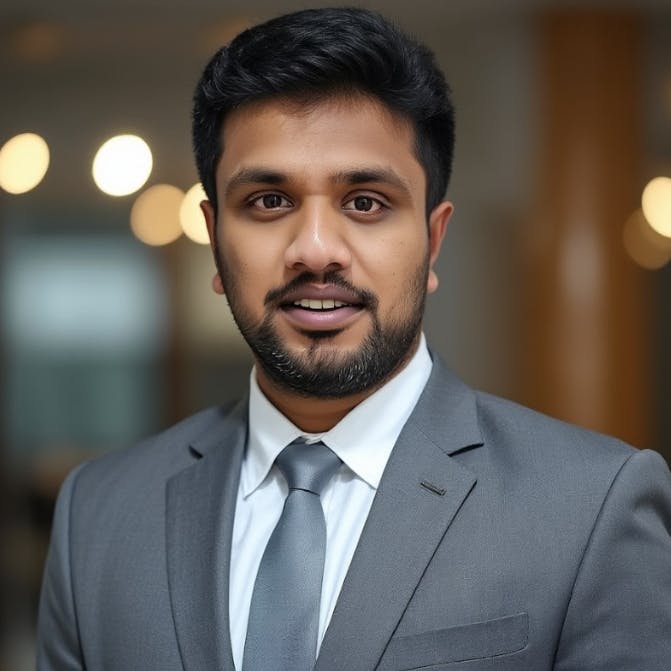The healthcare systems across the globe are now gradually embracing the much-needed shift toward personalized medicine. In this emerging industry landscape, the role of artificial intelligence (AI) has become extremely important in supporting patient-centric care. An expert in healthcare logistics and generative AI, Karthik Chava recommends that many long-standing challenges in precision medicine can be addressed by integrating neuro-symbolic platforms with dynamic neural architectures.
Chava has over a decade of experience in AI-driven healthcare transformation. His impressive research portfolio spans AI-augmented logistics, intelligent pharmaceutical distribution, and sample management. His research paper titled “Dynamic Neural Architectures and AI-Augmented Platforms for Personalized Direct-to Practitioner Healthcare Engagements” provides a comprehensive framework that drives smarter and adaptive care by combining computational intelligence with real-time health data.
AI Integration for Precision Medicine
The aim of personal medicine is to customize healthcare with treatments and decisions tailored as per the3 characteristics of individual patients, such as lifestyle, environment, and genetics. However, it is not easy to achieve individualized care at scale because of factors such as fragmented data, constraints in current healthcare infrastructure, and limited integration of AI in clinical settings.
In his recent publication, Chava has tried to address these limitations by a hybrid approach known as
“Personalized medicine demands systems that are not only intelligent but also interpretable and adaptive,” Chava explains. “Neuro-symbolic platforms offer the ability to integrate logic-driven clinical pathways with data-driven learning, enabling transparent, context-aware, and personalized healthcare delivery.”
Dynamic Healthcare Systems with Neuro-Symbolic AI
Advanced AI models capable of continuously adapting to new health inputs and learning from patient-specific contexts form the core of Chava’s research. By incorporating both neural networks and symbolic AI paradigms, these models allow systems to reason through complex medical scenarios while processing real-time biomedical signals from diagnostics, EHRs, and wearables.
Unlike traditional AI systems, the neuro-symbolic platforms proposed by Chava emphasize interpretability, which can be a very important feature for healthcare practitioners looking for justifiable treatment pathways and actionable insights.
The design by Chava incorporates multimodal input handling, which allows AI platforms to analyze data from EEG signals, browser activity, CT scans, genetic sequences, and even circadian rhythms. By learning continuously, these systems support physicians in tailoring interventions reflecting the most current patient realities.
Addressing Fragmented Engagement and Static Systems
The lack of continuity in practitioner-patient engagement is one of the persistent gaps in precision healthcare. Reactive traditional models often depend on infrequent in-person appointments and delayed feedback cycles. Also, static AI tools trained on generic datasets have limited adaptability to psychosocial contexts or individual patient histories.
To address this gap, Chava proposes real-time, direct-to-practitioner engagement systems mediated by AI. Through continuous feedback loops, these platforms support mental health tracking, enable proactive communication, and optimize therapeutic alignment.
In his study, Chava has detailed a flagship implementation for the Health Guardian platform. This implementation demonstrates how clinical engagement can be transformed into an ongoing, personalized dialogue with the help of embedded AI-driven components such as neural feedback models, generative dialogue systems, and wearable sensors. Patients can interact with intuitive, voice-assisted interfaces capable of contextualizing medical advice based on predicted outcomes and historical data. On the other hand, practitioners receive real-time updates from patient biosignals.
Real-World Applications and Case Studies
In Chava’s paper, Health Guardian and its companion platform Medical Guardian have been discussed in detail as case studies. Utilizing deep learning models, these platforms derive insights from digital biomarkers and biosignals to offer real-time feedback as well as long-term prognostic guidance.
His systems demonstrated the following capabilities in trials involving remote patient monitoring:
- Personalized therapeutic interventions in neurology and psychiatry.
- Early detection of sleep disorders and circadian disruption using wearable data.
- Proactive mental health support through AI-mediated dialogue and biofeedback.
Conclusion
Karthik Chava’s research provides a practical roadmap at the intersection of AI, personalized medicine, and ethical clinical engagement. At a time when healthcare systems are struggling to deal with rising chronic diseases, aging populations, and increasing patient expectations, this research presents a timely and actionable model. By combining symbolic logic and neural learning, his proposed
“To bridge the gap between data and diagnosis, between personalization and scale, we need systems that are both intelligent and understandable. Neuro-symbolic AI offers that bridge-where the science of computing meets the art of healing. These platforms do more than process information; they interpret meaning, contextualize care, and align with the practitioner’s reasoning. In doing so, they empower healthcare professionals to deliver not only faster and more accurate treatment, but care that is humane, transparent, and deeply personal. It is this fusion of logic and learning that will define the next era of precision medicine,” Chava concludes.









